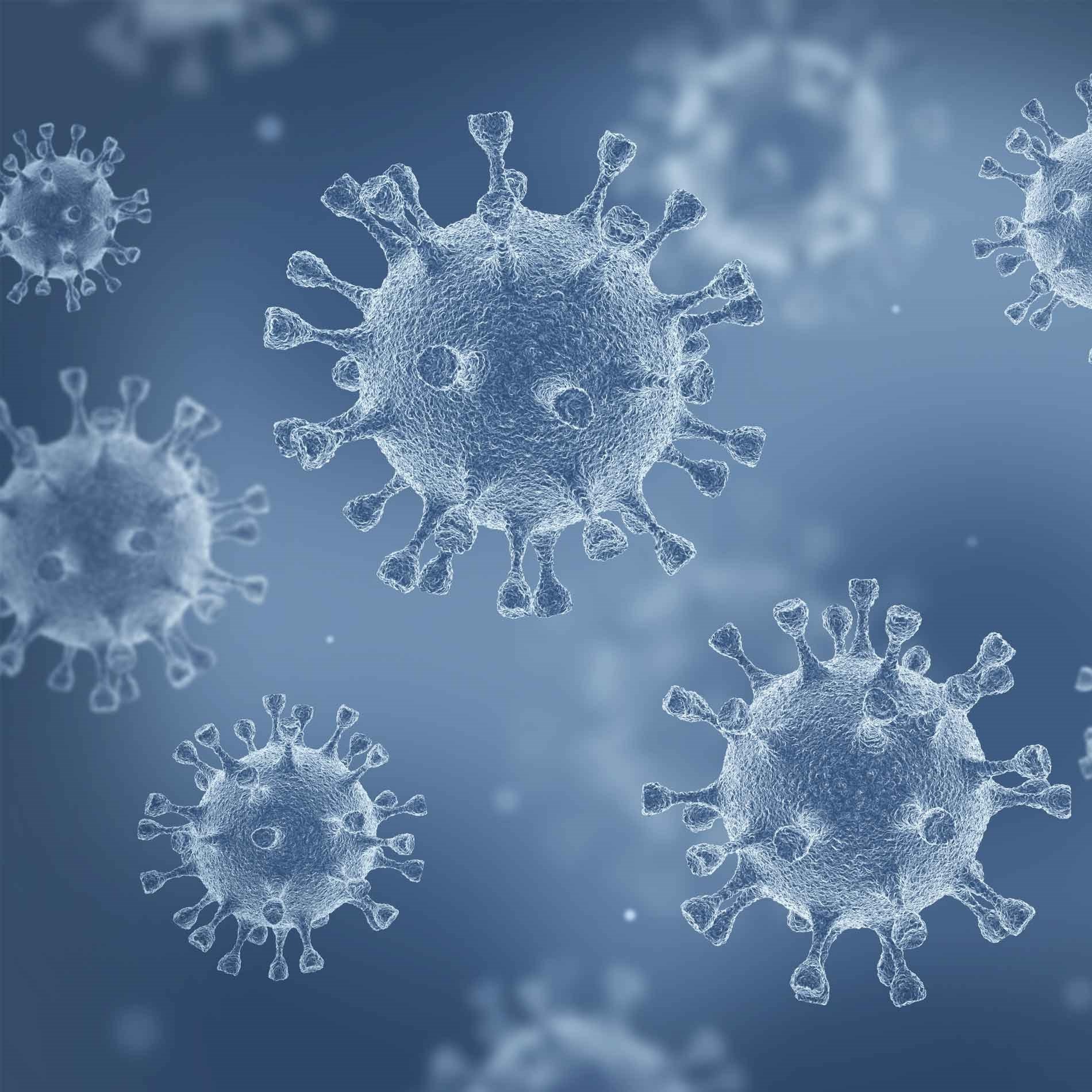New Research: Probiotics vs Asthma
There has been a sharp rise in asthma cases in children in the last 10 years, with the latest figures showing that one in eleven children in the UK are being diagnosed with asthma1. Sadly, approximately three people die in the UK of an asthma attack every year, and this has made clinical research into the support and prevention of asthma symptoms more important than ever.
A clinical study2 released in 2019, looks into the association between probiotic supplementation and asthma incidence in infants using a meta-analysis of randomised controlled trials.
Within this article:

Results
This meta-analysis (which combines data from several studies) looked at the results of 19 randomised controlled trials, which had focused on determining the effects of probiotics on the prevention or alleviation of asthma symptoms in children. A total of 5157 children took part in the trials assessed.
The results were mixed: positive outcomes indicated that in some cases probiotic supplementation significantly reduced wheeze incidence among infants with atopic asthma. Atopy is typically associated with heightened immune responses to common allergens, especially inhaled allergens and food allergens, resulting in conditions such as eczema and asthma. This propensity to develop atopic diseases can be greater in children with a family history of similar conditions. The researchers suggested that more powerful research is needed in the future to build on these results.
Less positive outcomes were observed in studies looking at the potential of probiotics to prevent asthma, and the researchers concluded that probiotic supplements during pregnancy or infancy were not associated with a lower risk of children developing asthma.
Which strains of bacteria were studied?
Ten trials used the Lactobacillus species of probiotics, one used the Bifidobacterium species, six used probiotic mixtures, and two used separate Lactobacillus species and Bifidobacterium species arms compared with 1 placebo group. 13 of the trials, encompassing a total of 4021 children, compared probiotic supplements with a placebo.
The researchers also noted that the properties of different probiotic species can vary and may be strain-specific. For example, an animal study looking at allergic asthma noted positive results from the use of Lactobacillus rhamnosus GG® (LGG®) but not Lactobacillus rhamnosus GR-1® (perhaps not surprising as L. rhamnosus GR-1® is most commonly researched for vaginal health as it prefers to live in the vagina). Learn more about the research behind Lactobacillus rhamnosus GG® and Lactobacillus rhamnosus GR-1® on the Probiotics Database.
One of the clinical trials, Wickens et al (2013)3, used separate Lactobacillus rhamnosus HN001 and Bifidobacterium lactis HN019 groups and compared these with one placebo group. The results indicated that L. rhamnosus HN001 showed promise in preventing the development of eczema and atopic syndrome in children thought to be at risk of developing allergies; however, a similar effect was not noted for B. lactis HN019, once again indicating that potential benefits may be species specific. Learn more about the research behind Lactobacillus rhamnosus HN001 and Bifidobacterium lactis HN019 on the Probiotics Database.
The researchers concluded that future studies are needed in order to further explore strain-specific properties in asthma support.
More recently, scientists have reported that probiotic supplements such as Bifidobacterium infantis 35624 could improve asthma control and lung function while reducing the need to use inhalers6. The researchers think that these improvements may be due to the decrease in dysfunctional T regulatory (Treg) cells that comes with probiotic treatment.
What is asthma?
Asthma is a chronic respiratory condition affecting the airway tubes that carry air in and out of the lungs. It can be triggered by a variety of factors, including allergies, stress, and exercise, also infections resulting from colds and flu, and even damp environments. When an asthmatic encounters one of their triggers, then their airways become inflamed, and may narrow and tighten. This makes it difficult to breathe and results in typical asthma symptoms of chest tightness, wheezing, and coughing. A build-up of mucus in the airways can make it even more difficult for asthmatics to breathe during an attack.
The so-called “hygiene hypothesis” suggests that the composition of the intestinal microbiota may be a key factor in the higher incidence of allergic diseases which has emerged over the past few years. The hygiene hypothesis suggests that it can be a positive thing for the developing immune system to be introduced to a wide variety of microorganisms including infectious agents, symbiotic microorganisms, and parasites, and lack of exposure can lead to increased risk of allergic disease.As the bacteria in the gut are known to interact with the immune system, it has been hypothesised in the past that early probiotic exposure could positively affect immune system development and reduce risk of allergic diseases including asthma.
Conclusion
The hygiene hypothesis has since been reviewed and to some degree discredited , with recent theories4 suggesting that we should carefully consider the composition of the microbiome and protect against pathogen exposure. However, the original theory did lead to a particular scientific interest over the past few years in the use of probiotics during pregnancy or infancy.
This meta-analysis reviewed many of these associated studies and found that the use of probiotic supplementation compared with placebo was not associated with a lower risk of asthma in infants, and the findings do not support any recommendations to use probiotics in the prevention of asthma in infants. Overall there was also no significant association of probiotic supplementation with reduction of wheeze; however, the researchers did identify some positive outcomes, and suggested that more research is needed to explore these results further.
There is still much to be learnt and communicated about the potential benefits of probiotics for asthma. A 2022 study in Saudi Arabia highlighted significant gaps in knowledge in the role of the microbiome in asthma and allergy development amongst health professionals5.
For further reading, take a look at the articles below:
Probiotic supplements for the prevention of asthma?
How the infant gut develops: New study
New research on 3 Rosell strains
References
- Asthma.org (2019) 'https://www.asthma.org.uk/about/media/facts-and-statistics/'
- Wei, X, et al. (2019) 'Association between probiotic supplementation and asthma incidence in infants; a meta-analysis of randomised controlled trials'. Journal of Asthma [online] 1532-43033.
- Wickens et al. (2013) 'Early supplementation with Lactobacillus rhamnosus HN001 reduces eczema prevalence to 6 years: Does it also reduce atopic sensitization?' Clinical & Experimental Allergy, 43(9):1048-57
- Bloomfield, S. F., Rook, G. A., Scott, E. A., Shanahan, F., Stanwell-Smith, R., & Turner, P. (2016). Time to abandon the hygiene hypothesis: new perspectives on allergic disease, the human microbiome, infectious disease prevention and the role of targeted hygiene. Perspectives in Public Health, 136(4), 213–224. https://doi.org/10.1177/1757913916650225
- Alkater S (2022) Physicians’ Understanding of the Role of the Microbiome in Allergies and Asthma: A Questionnaire-Based Study in Saudi Arabia. J Asthma Allergy. 2022;15:1081-1091.
- Sangkanjanavanich S, et al. Ann Allergy Asthma Immunol. 2022;doi:10.1016/j.anai.2022.08.1000.
- Sadrifar S et al., (2022) The impact of multistrains of probiotics on Th17-related cytokines in patients with asthma: a randomized, double-blind, placebo-controlled trial. The Journal of Asthma, Dec 13:1-10. doi: 10.1080/02770903.2022.2144353.
Popular Articles
View all General Health articles-
General Health17 Mar 2023
-
General Health04 Sep 2023


